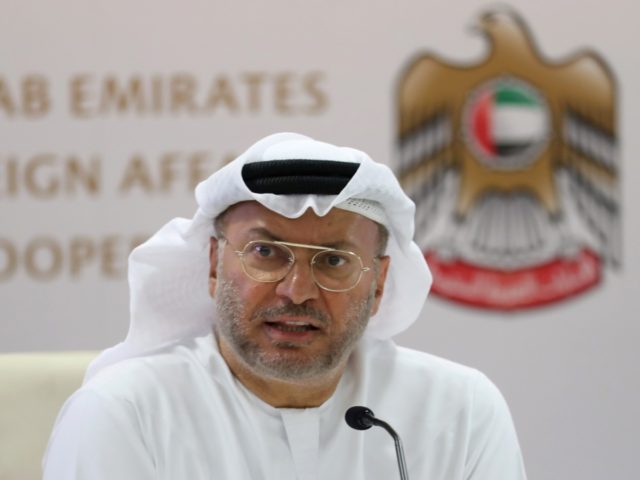TEL AVIV – A high-ranking official from the United Arab Emirates (UAE) on Tuesday called for “open lines of communications” with Israel, notwithstanding any political disagreements Abu Dhabi may have with Jerusalem over the Palestinian issue.
Emirati Foreign Affairs Minister Anwar Gargash told the American Jewish Committee Virtual Global Forum the Arab world’s longstanding boycott of Israel was not unproductive. The “stonewalling and closed lines of communications” has only made the Middle East conflict worse, he said.
Instead, the Arab world and Gulf states should look to built ties in a range of fields such as innovation and trade. He pointed to Egypt, Jordan and Turkey’s formal ties with Israel, and a thaw of relations between Jerusalem and Qatar and other Gulf states.
While Gargash stressed his country’s objection to Israel’s planned unilateral annexation of parts of the West Bank, but underlined his country’s policy of “decoupling the political from the non-political.”
“Can I have a political disagreement with Israel but at the same time try and bridge other areas of the relationship? I think I can. I think that is fundamentally where we are,” Gargash said.
Last week, a UAE Etihad Airlines flight landed in Israel with medical supplies for Palestinians dealing with the coronavirus pandemic. The Palestinian Authority however, rebuffed the gesture, saying it could not accept aid that was collaborated with Israel.
“The UAE is clearly against any annexation as is being proposed by the current Israeli government. Having said that, that is the political domain. Do I have to really look at all the other domains and make them almost static because of the political domain? We have tried that, as a group of Arab countries, over many years, and I don’t think it has really led to what we want in terms of bringing stability to the region,” he told the interviewer.
“I think we can come to a point where we come to a given Israeli government… and say, we disagree with you on this [annexation], we don’t think it’s a good idea, but at the same time there are areas, such a COVID, technology and other things, where we can actually work together.”
“What we see today is that negotiations, and having lines of communications open, actually will yield better results for us and for the Israelis,” he said.
He added that the “demonizing [of] Jews by radicals on the Arab side, has not helped anybody.”
“We need to take that element out and we need to come and say we do have lines of communications,” Gargash said. “Not speaking to Israel is just not getting us anywhere.”

COMMENTS
Please let us know if you're having issues with commenting.